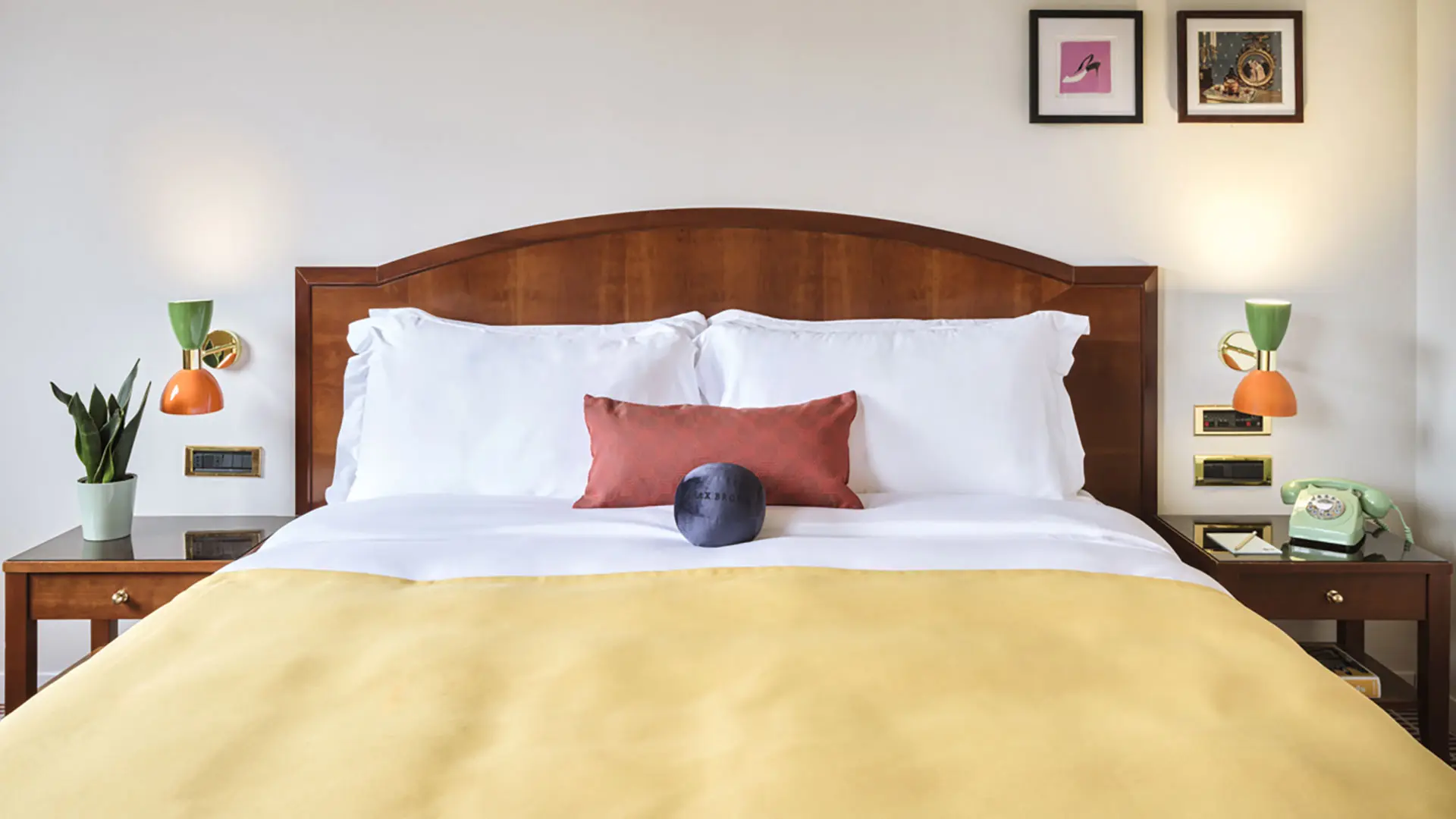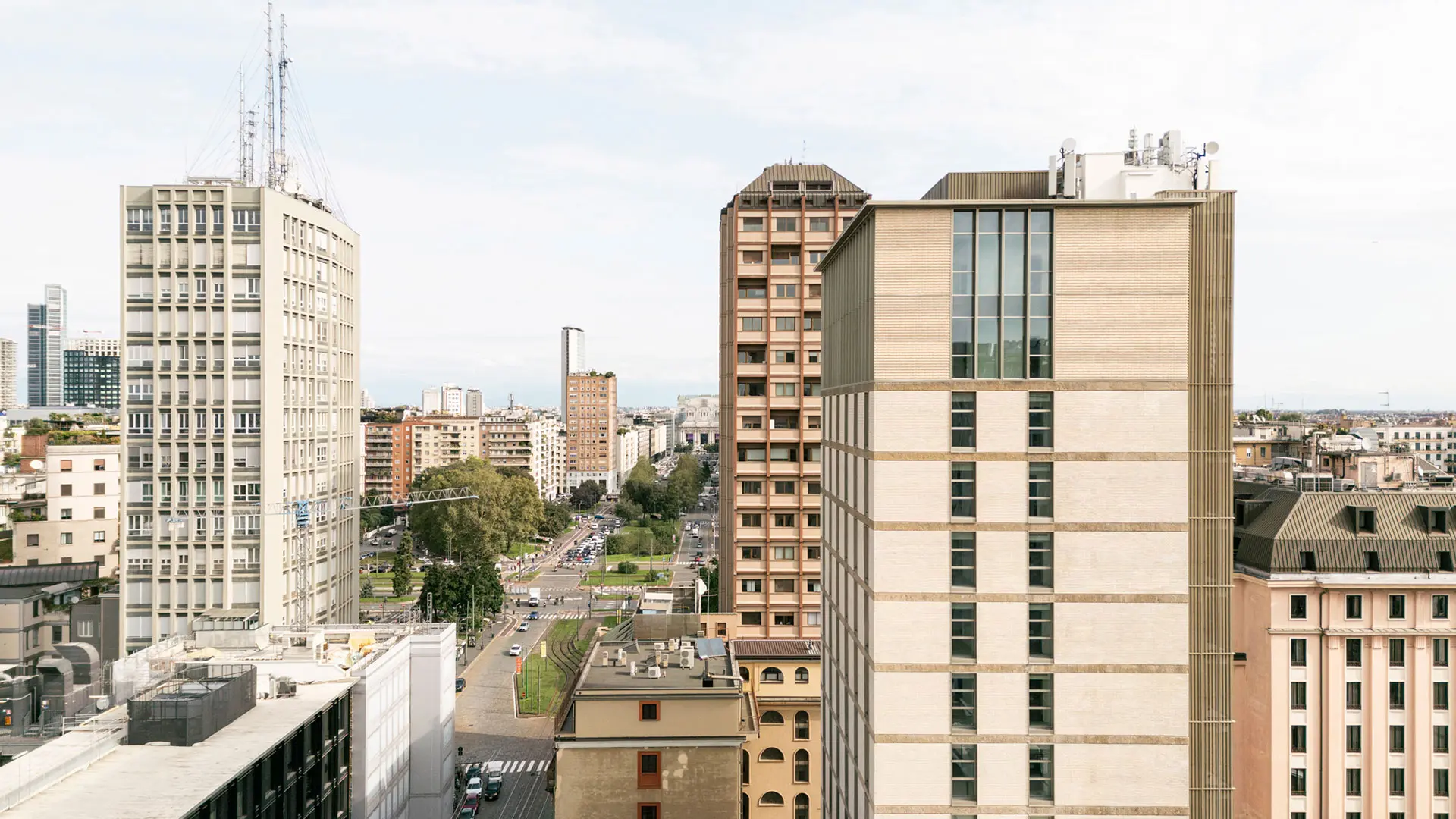In partnership with MiCodmc, a selection of establishments ripe for discovery during the 63rd edition of the Salone del Mobile.Milano, from 8th to 13th April
CEO Matteo Galimberti sums up Flexform. which misses the Salone del Mobile.Milano very much indeed
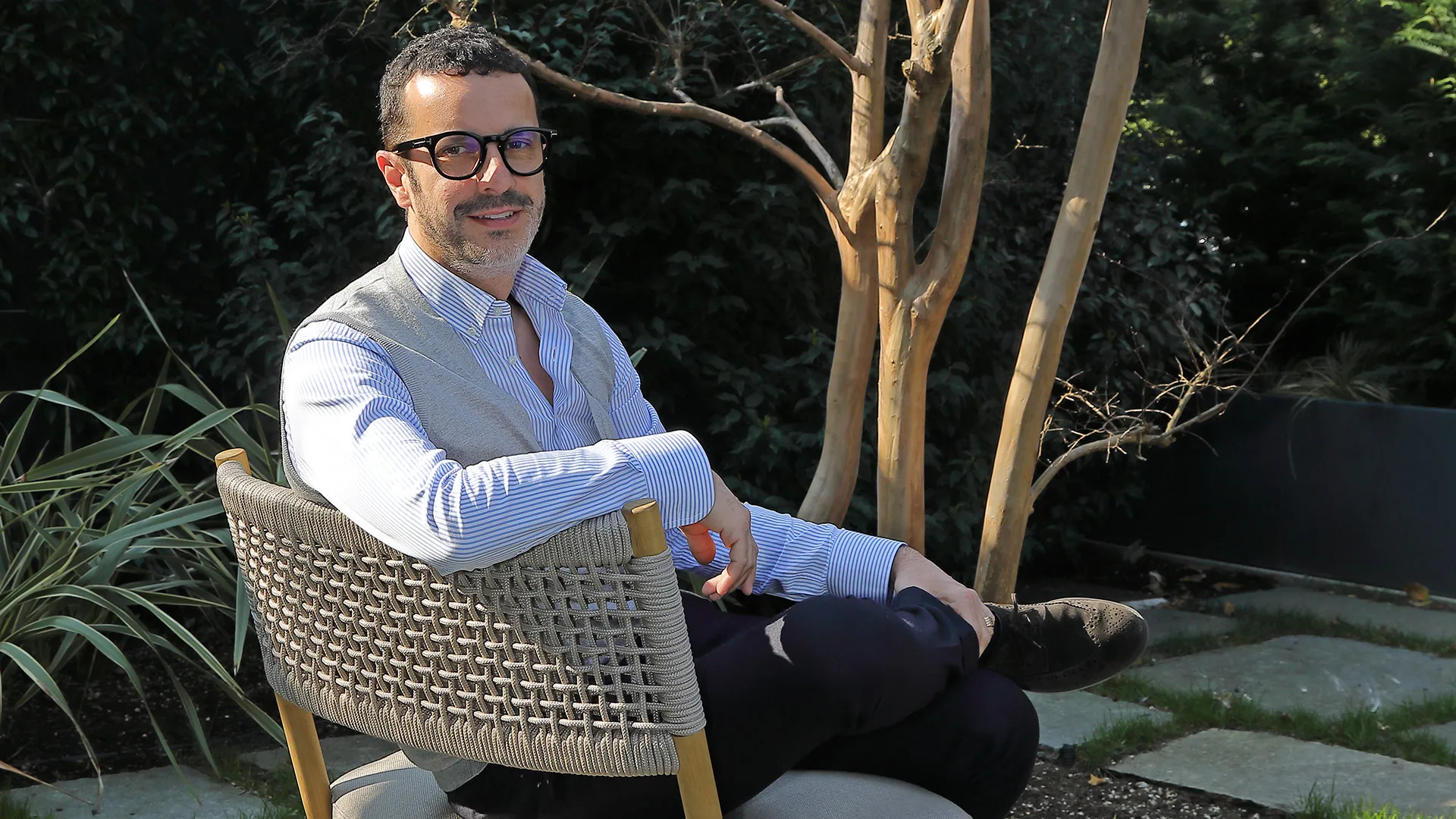
The new products in the collection in September, the digital revolution, a new way of looking at the home, and 160 employees who represent the core strength of the company.
"We have found a solution to everything, we have replaced meetings with online ones, press conferences with digital presentations," explains Matteo Galimberti, managing director of Flexform, the Meda-based company from Brianza founded in 1959. "But that relationship, the one that is created with people, is unique, rare and almost impossible to recapture without the Salone del Mobile."
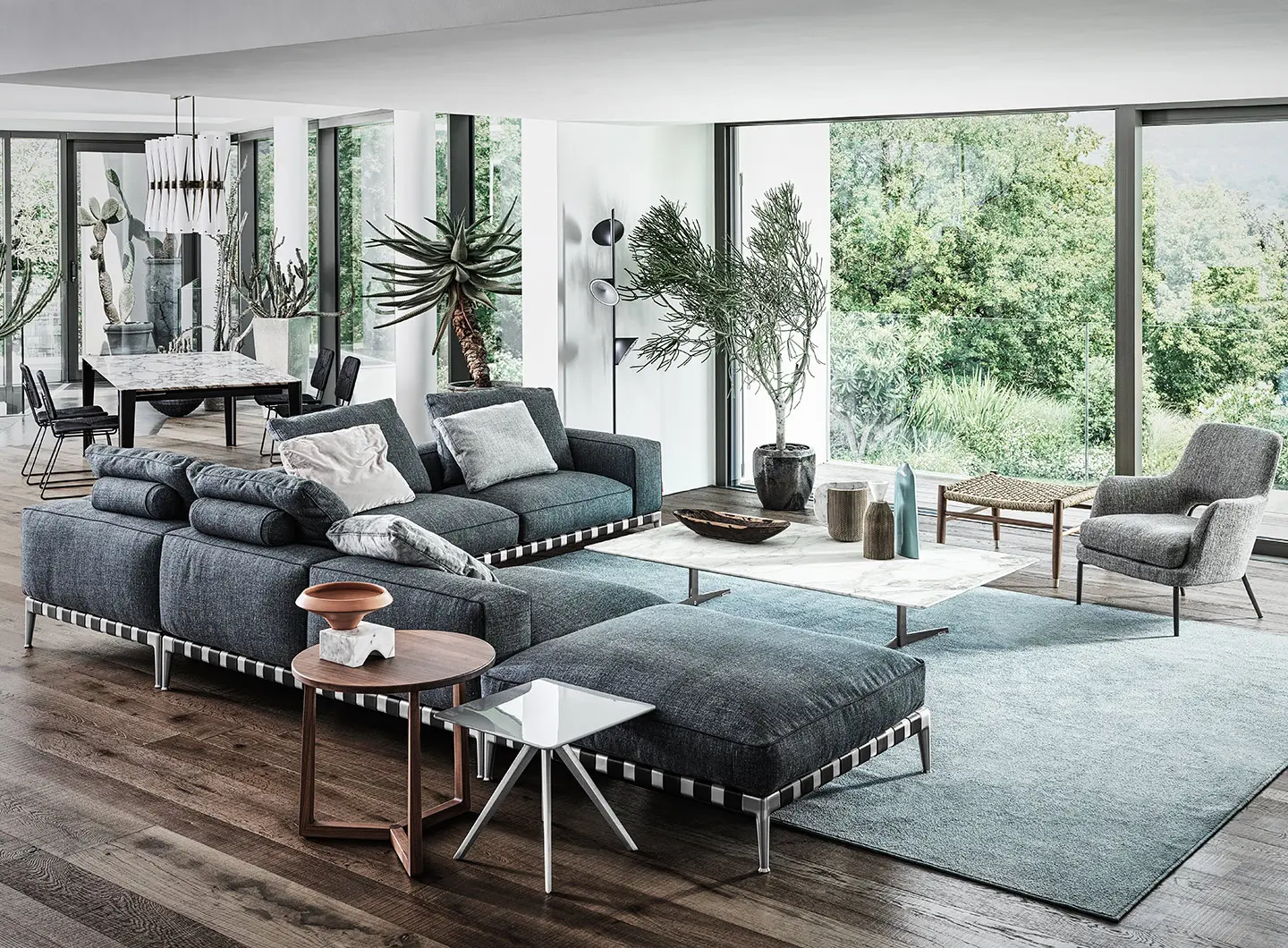
Gregory sofa and Gatsby armchair
In spite of everything? We’re doing well. At first, with the stores closed, we were gripped by fear about the situation. Then, since the end of May, we've gone back to business as usual. 2020 was a positive year, we were able to make up for what we lost in the initial two months. The market responded very well. But something that penalised us both as a company and as a sector overall, was the Salone del Mobile.Milano not taking place. It is a major event on a global level, and a fundamental opportunity for our sector that cannot be missed.
We missed the spirit, the meetings, the interpersonal relationships, the planning. The Salone encompasses everything, from relationships with architects to those with clients. It is the most important trade fair in the world because it allows companies to pave the way for the market, creating direct relationships with dealers and developers.
It's hard to say, there's not one thing in particular that brings us good fortune every year. But, like Flexform, we try to accommodate what the show offers us in the best possible way and then put it into practice. We are always a bit tense, because when you present a new collection, a new image, there’s always a question mark hanging over it. Apart from the company itself, which may or may not be to your liking, you have to understand whether the market perceives it in the same way as we present and assess it. It's about having a project, then getting it up and running.
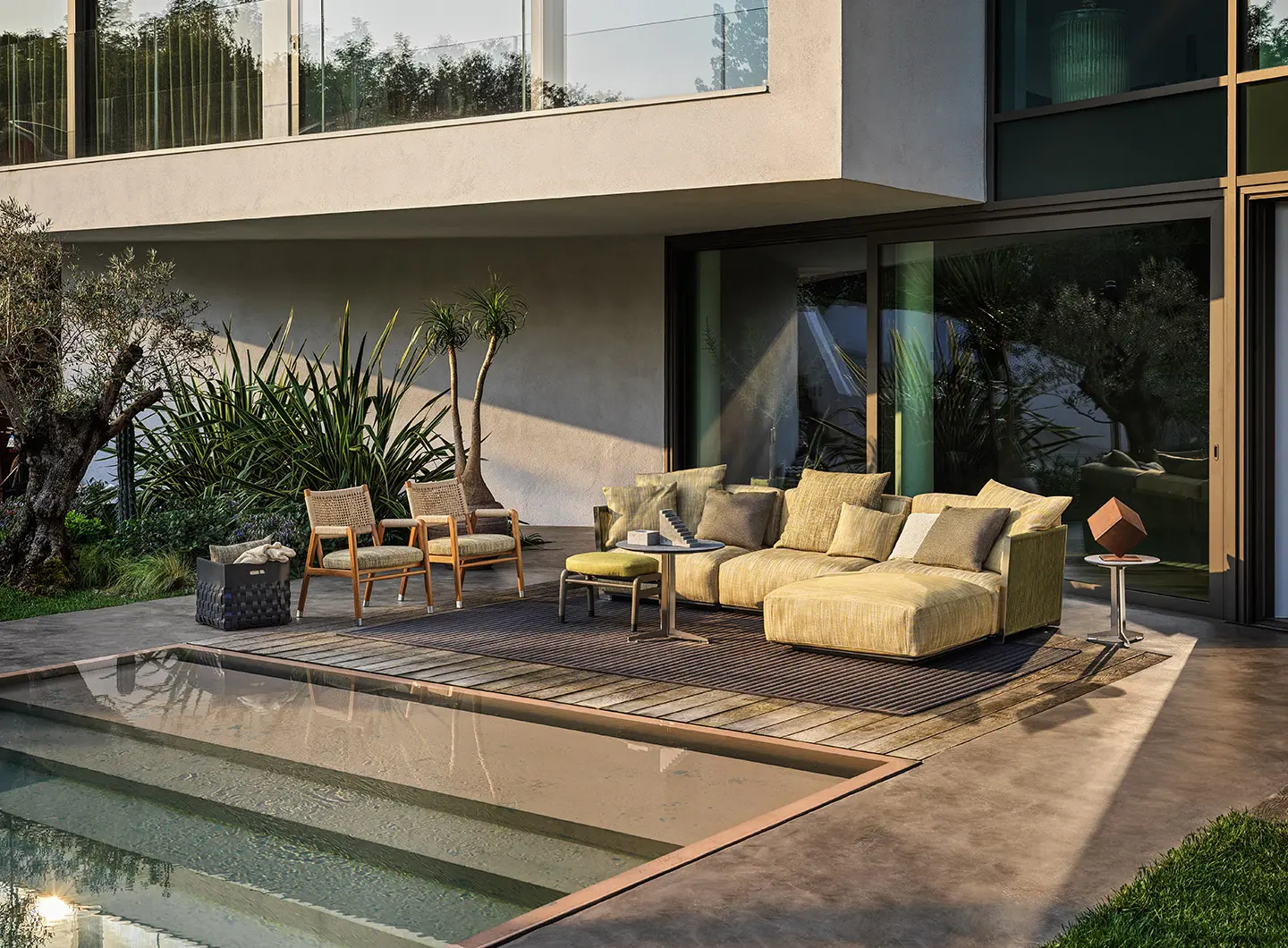
Vulcano sofa and Ortigia armchair
There is the pre-Salone phase, the six months before: this is the most vital period; you decide on how to present the product, the details, the materials. These are the moments to get a project off the ground. But there is a small paradox.
The days of the Salone are the most relaxing. Everything that has to be done is done, it's the time when you sit back, analyse the results, tick things off. You can see if the product met with approval, and you take stock.
In the last five years we’ve had very positive feedback. Initially the company had to position itself globally, then came the consolidation phase when the quality of the products were confirmed.
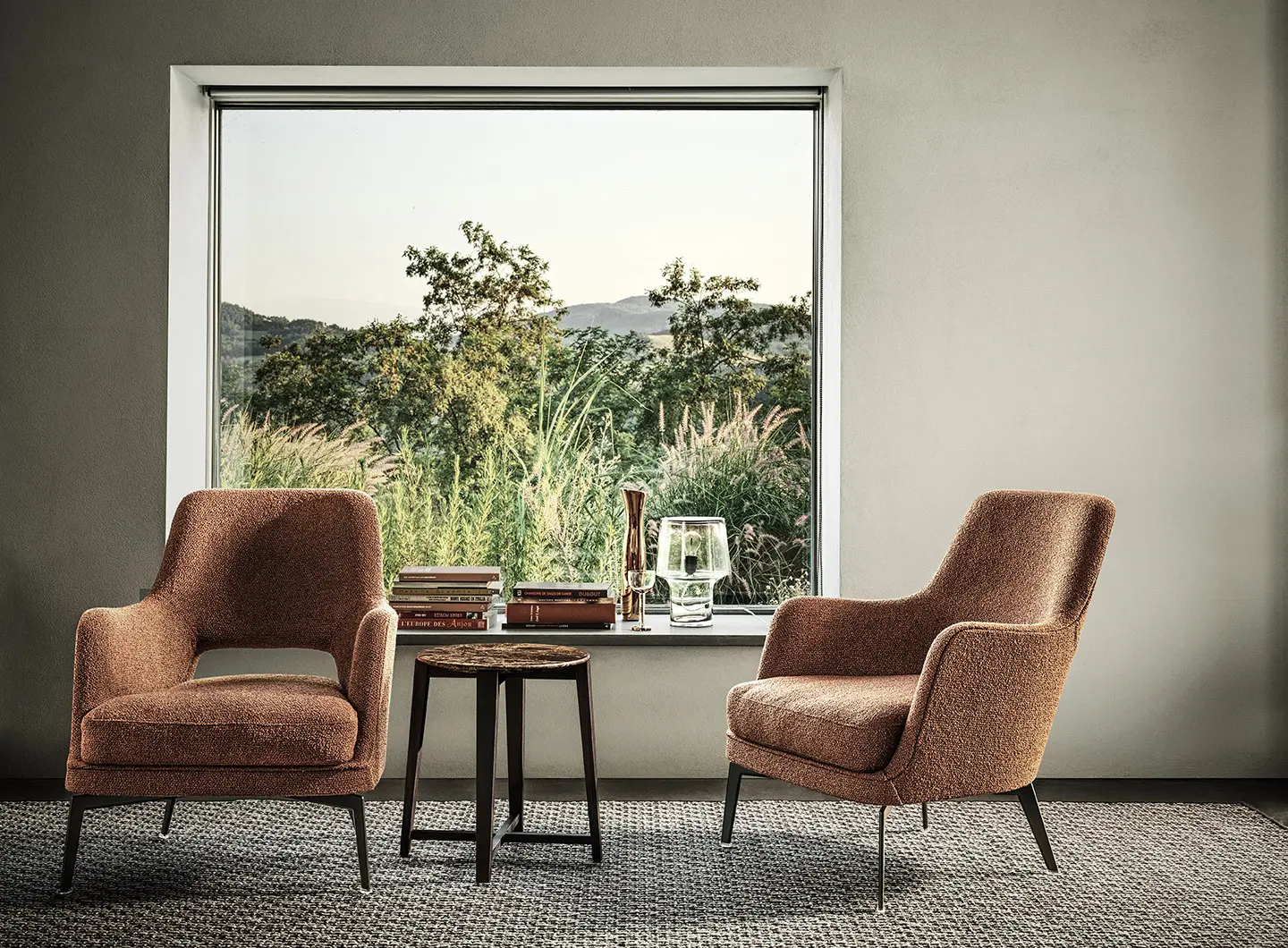
Gatsby armchair
We had already invested in the sector. It helped us overcome one of the many difficult moments in terms of communication, meetings and presentations. And the company thrived because of that too. We had advanced tools and we used them.
The domestic environment has once again become the focal point for all families. Before, perhaps, it was considered a bit like a hotel, a sort of dormitory: you went out in the morning and came back in the evening, you didn't stay long and went to sleep.
With the pandemic, the home became a sanctuary. This has changed the world, the way of thinking; if before the priority was to go out, travel, go out to dinner and enjoy life, now the opposite is true. The home has become the place to live, to eat, to work. Our needs have changed, and so has our use of our homes. This has moved the market as a result.
It is a refuge where every family feels comfortable, at ease; it is the place where people communicate, live and work.
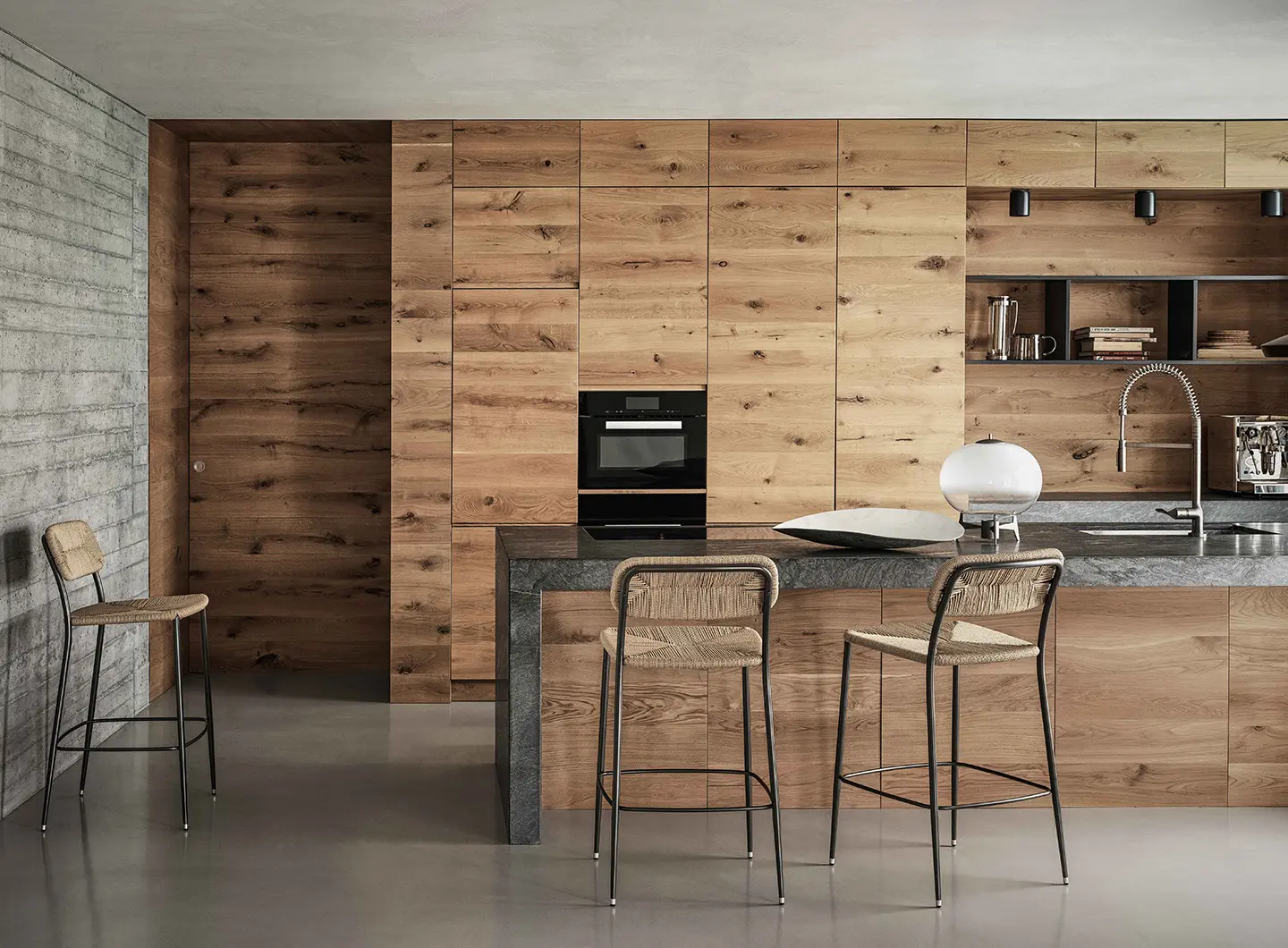
First Steps barstools
I won't deny it, at first it was a slap in the face, like many other things. But we didn't give up, we didn't stop, we pressed on with our business plan. We saw the emergency as a total revolution. I believe that before Covid came along things were not working anyway, the system had already identified some shortcomings and chasms. We extracted the good things from these moments. We carried the company forward with serenity, and we never stopped believing. The outcome is without doubt affirmative.
We have also changed the way we work. You don't need to take ten planes in three days to go to China, the result is the same, even with a well-executed conference call.
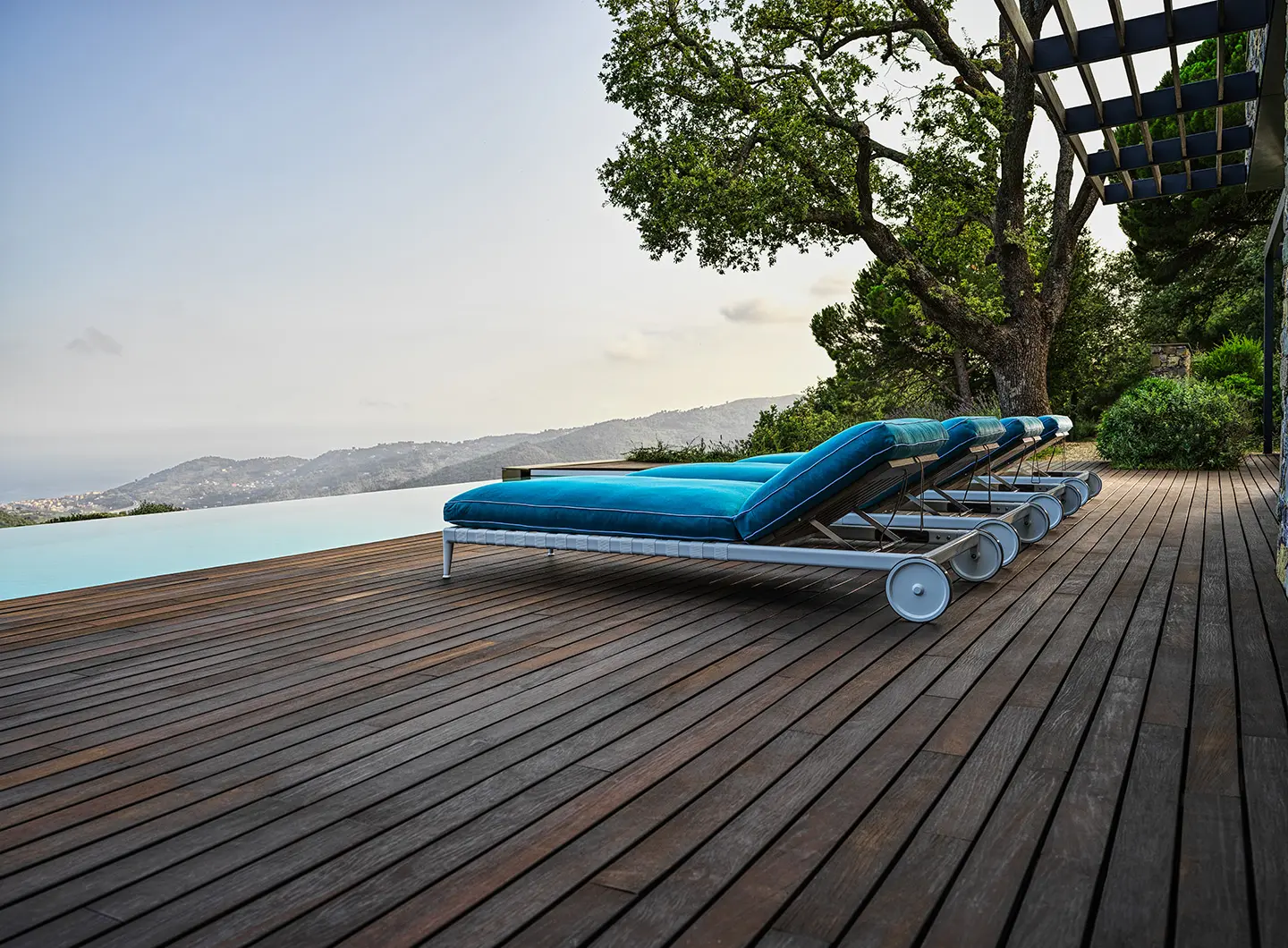
Atlante daybed
Certainly, the relationship with our employees; before the pandemic, there was a relationship based solely on work. We have rediscovered the importance of talking to them, which has strengthened our bond and made us realise that behind the company there are people who respect what we do and are 110% part of the enterprise. This was not appreciated before, or rather it was implied but not said. Now we have realised that we have a strong team behind us. We don't have employees, but partners.
I think so, it was a moment of great cooperation that united us. And it straddled company welfare, parental leave, children being home schooled, smart working shifts and maximum flexibility.
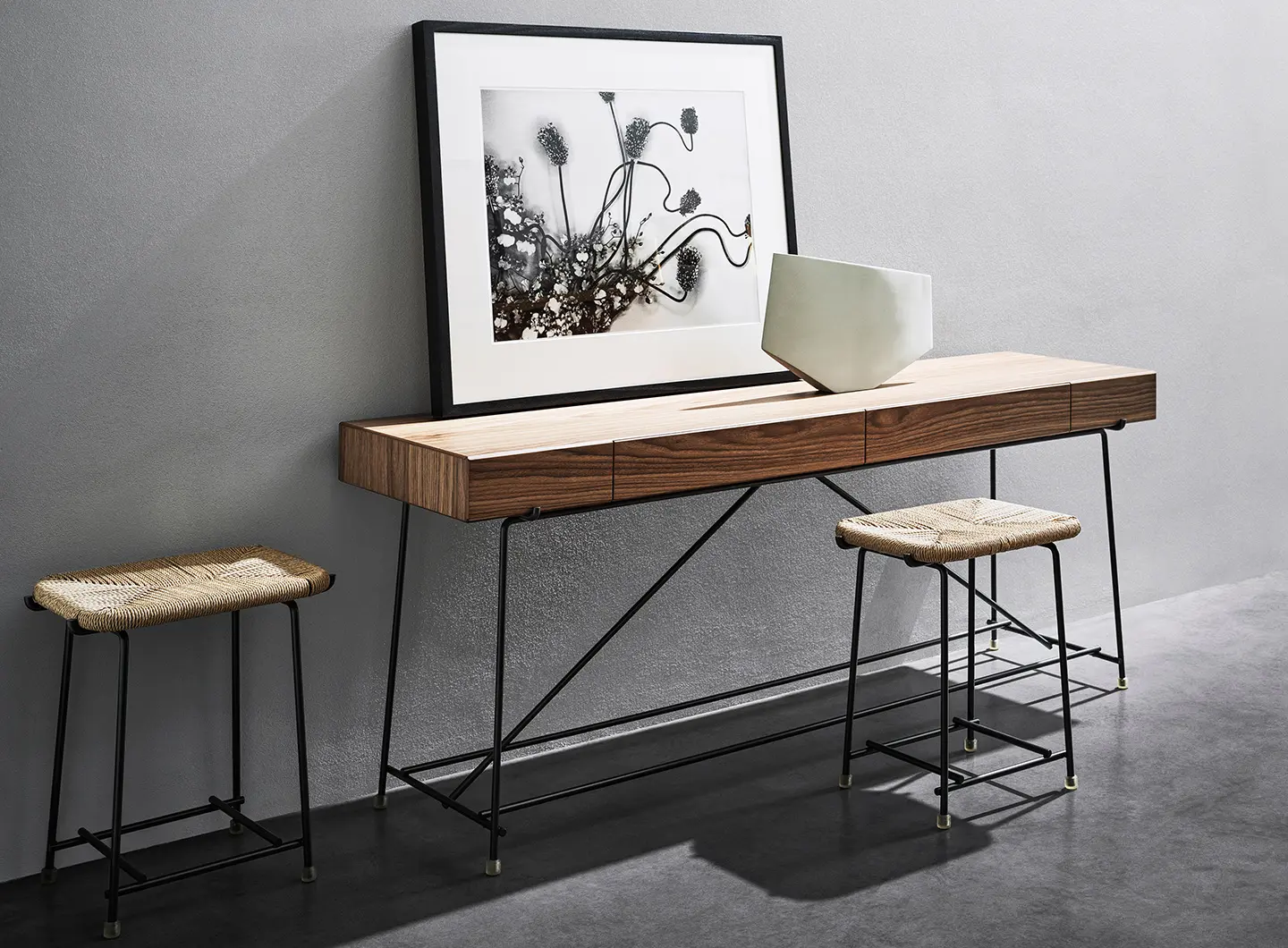
Any Day
We will present new collections, no doubt about it. We have new partnerships, we are continuing to work with Christophe Pillet, the French architect, and we are also liaising with some new designers. We are not in a hurry to create new partnerships or present anything in the immediate future, but we are working on our projects step-by-step. We also have the architect Citterio on board, a key driving force behind the presentation of our company in terms of image and our stand.
Although the exhibition formula is very different to what we were used to, we nevertheless believe it is a good opportunity and a chance for the companies to acquire visibility. We very much hope that the “supersalone” will draw back and welcome lots of visitors, especially now that the rising number of vaccinated people means we can consider making international journeys again.


 Stories
Stories




